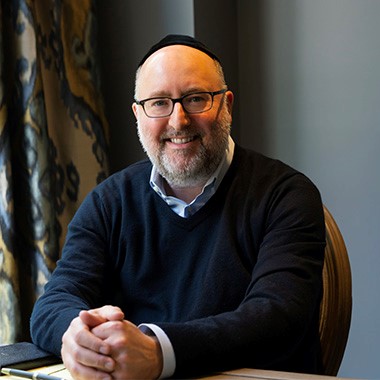In the beginning of the portion Va’etchanan, Moses tells the Israelites that he begged the Creator to allow him to enter the Land of Israel. The numerical value of the word Va'etchanan, which means “begged,” is 515. And the Midrash tells us that Moses actually prayed to the Creator 515 times to enter into Israel.
The obvious question, then, is why did Moses pray so many times for this one thing? If the Creator did not answer his prayer the first time, why keep asking? What possible reason could there be for his actions, and more importantly, what are we meant to learn from it?
"Strengthening our understanding that all we need can only come from the Creator."
To begin to understand this, we need to analyze the true purpose of prayer. The Midrash explains that the verse, “…and to serve Him with all your heart,” refers to prayer. What does prayer have to do with serving? We usually think of prayer as a way to ask for something from the Creator, while serving is doing something for someone else. What connection is there between prayer and service?
Rav Moshe from Trani, the Mabit, explains a very important idea regarding prayer. He says that the purpose of prayer is not primarily for our prayers to be answered; the process of prayer is to show our understanding that there is nothing or no one in the world that can truly fulfill our needs except the Creator.
The Mabit teaches us that when we pray, our consciousness should be such that we know we have nothing without the Creator’s assistance. And this is why we pray. We don’t necessarily pray to have our requests granted, but to strengthen our understanding that we have nothing by ourselves, and that all we need can only come from the Creator. In other words, prayer is a tool for us to use in order to strengthen our trust and understanding that all we need only comes from the Creator.
Of course, there are many reasons for prayer, and large amounts of Light can be revealed through the process of prayer. But the Mabit tells us that every time we pray and ask for things from the Creator, we should instill in our consciousness that we can only receive that fulfillment from the Creator. And if we are truthful with ourselves, whether consciously or subconsciously, we usually think there are other factors that influence our fulfillment. But the way we can actually receive from the Creator is by having complete trust that only the Creator can fulfill our needs. Without this consciousness, it is difficult for us to receive Light and blessings.
This teaching assists us in understanding Moses’ actions. He was not praying to the Creator so that his prayer would be answered. Rather, he was working to fill himself with a greater and greater understanding that everything is from the Creator. He prayed 515 times because he was not only developing himself spiritually, but also, more importantly, he was teaching us a true understanding about prayer. This becomes even clearer when we realize that the Hebrew word for prayer, Tefilah, is numerically equal to 515, which, as we said earlier, is equal to the word va'etchanan, “begged.” It really is a beautiful understanding we receive from Moses on this Shabbat.
